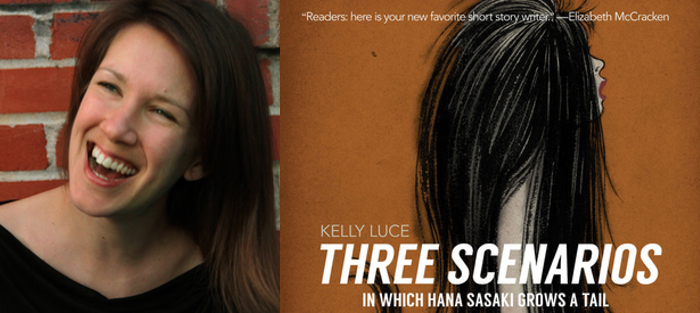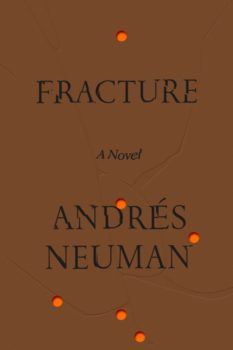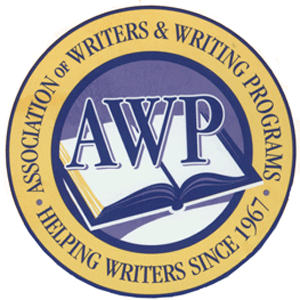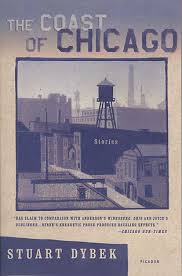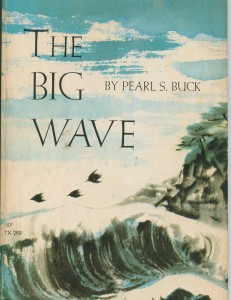I first met Kelly Luce when we were both scholars at the Sewanee Writers’ Conference. We were suite mates, our rooms connected by a bathroom lined with cinderblock walls. On a daily basis, I locked her out of the bathroom. That summer, Kelly was listening to a lot of Lady Gaga, and after workshop, the strains of “Just Dance” drifted into my room. Also that summer, we were both in the process of trying to sell story collections, and the lyrics took on a kind of mantra-like quality for me: “Just dance, gonna be okay!…Go! Use your muscle, carve it out, work it, hustle…”
Selling a short story collection can feel like a hustle. It also takes, like the song suggests, using your muscles, carving out a niche in a market that is notoriously hard to break into. But both Kelly and I landed on our feet, eventually selling story collections to small presses. Her debut collection, Three Scenarios in Which Hana Sasaki Grows a Tail, was the first book that the Austin-based press A Strange Object published, and the book was received with well-deserved praise. It won the IndieFab Awards Editor’s Prize in Fiction and was a finalist for book prizes from the Texas Institute of Letters and Texas Writer’s league. The collection, set in Japan, introduced readers to a wide array of characters—among them, an oracular toaster, a woman who grows a tail, and an extraordinary sex-change operation. These stories tip into the fantastical, plumb the power of memory, and measure the human capacity to love. It also has my favorite cover of any book published in 2013.
Kelly grew up in Brookfield, Illinois. After graduating from Northwestern University with a degree in cognitive science, she moved to Japan, where she lived and worked for three years—and where she would draw the inspiration for her stories. Her work has been recognized by fellowships from the MacDowell Colony, Ragdale Foundation, the Sozopol Fiction Seminars, the Kerouac Project, and Jentel Arts, and has appeared in the Chicago Tribune, O magazine, Salon, Electric Literature, Crazyhorse, The Southern Review, and other magazines. She has just graduated this month as a fellow from the Michener Center for Writers at the University of Texas and is editor-in-chief of Bat City Review.
Three Scenarios in Which Hana Sasaki Grows a Tail is a wildly imaginative book, and like Kelly, full of surprises. It was a pleasure to talk with Kelly about the collection, about life after the MFA, and how her writing process works. Kelly is full of energy, and since that summer at Sewanee, we have danced in Austin, made kale chips in Wyoming, hiked mountains, and both navigated the waters of having first books that are story collections.
Interview
Nina McConigley: What are three scenarios in which you are happy?
Kelly Luce: Walking alone in the redwoods, singing karaoke, and chasing down a disc (Frisbee).
I know you are a keen ultimate Frisbee player. How is writing like playing ultimate Frisbee?
Ooooh…
That was actually a trick question since ultimate Frisbee is a team sport. Actually, how is writing like hula hooping (another thing I know you are good at)?
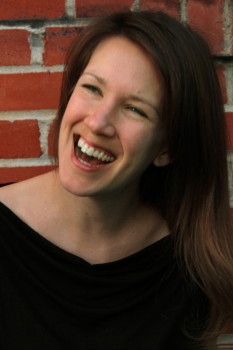 No, writing IS like Ultimate! That “ooooh” was me being impressed at your delicious question. I think about this all the time. Learning to play Ultimate is one of the hardest things I’ve done in my adult life. I’ve always been an athlete, but team sports terrified me: if you screw up, it affects everybody. As a badminton player or runner (or writer), the only one hurt by your mistakes is you.
No, writing IS like Ultimate! That “ooooh” was me being impressed at your delicious question. I think about this all the time. Learning to play Ultimate is one of the hardest things I’ve done in my adult life. I’ve always been an athlete, but team sports terrified me: if you screw up, it affects everybody. As a badminton player or runner (or writer), the only one hurt by your mistakes is you.
Writing is like Ultimate, for me, because they’re both unconquerable pursuits that push me to give everything I have. I’m naturally lazy, so I need that. I gravitate toward doing things I’m good at right away, but as I’ve gotten older I’ve realized the importance of sticking with things that aren’t immediately gratifying—learning to play co-ed Ultimate as one of the slower people on the field, for instance. Or finishing a novel.
And to the second question: writing is like hula hooping in that you need a strong stomach to do it for any length of time.
How many pairs of cowboy boots do you own? Do you feel like you have more swagger in them? Do you write in them?
Right now, just five. Brown, blue, green, black, and the cream ones I danced in at my wedding. Boots have always made me feel badass. Though I don’t write in boots; I write barefoot. Or in fuzzy socks. Do you have writing footwear? Also, this question reminds me of something I wanted to ask you: how many pieces of taxidermy do you own? Are any writing talismans?
I actually only own one piece of taxidermy—my jackalope Dorothy. She’s kind of a life talisman. In that, I seemingly talk to her a lot when I am feeling stuck. When I moved once from Wyoming to Texas, and then back again, she was in the passenger seat. I pretty much talked to her the whole drive. I realize this makes me seem like I am nutty. Which I guess it true. She is a very good listener. Otherwise, I own a lot of antlers. And an antelope skull. But living in Wyoming, you see A LOT of bad taxidermy. So speaking of animals, you are the Editor-in-Chief at Bat City Review. How has editing shaped your writing? Or what are you excited about when you are reading fiction?
I’m a picky line editor, so if a story isn’t smooth on the sentence level, I have a hard time engaging with it. I love seeing writers turn tropes and clichés on their heads, and if a story makes me LOL, I know I’ve found something special. I just love humor. It combines the dark and the light.
I know you have just finished writing a novel. How has that experience been compared to the stories?
IT IS RIDICULOUSLY HARD. Whoever said that stories are fun weekend affairs and novels are arduous marriages had it right. A story, I can keep the whole thing in my head; a novel, it’s too big. Every time I put the novel away for a while, it takes a good week to return to a place where I can think about revising or adding new material.
Are you like me in this? You’re in a similar position, having a book of stories out and finishing up a novel.
My experience of writing a novel has been so different. Many the stories for my collection were written during my MFA, and I had more concrete deadlines. The novel has been slower and I feel like so many balls are in the air. I’ve had to do a lot more planning. I have maps and notes to myself all over my study! But thinking about MFA programs, how has being in the Michener workshop at University of Texas affected your work?
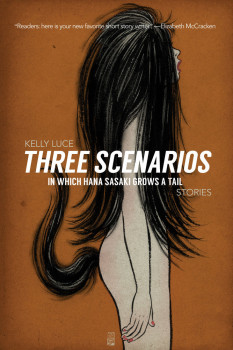 In terms of my editing work, I’ve gotten sharper, I think, at giving precise feedback, and at deciding what feedback is useful to me. And being in a workshop led by a master teacher like Elizabeth McCracken is wonderful not just for the attention to the work, but for the more general lessons about writing (and life). I wouldn’t say the workshop has strongly affected what I write, but that may be an effect of doing an MFA after many years of writing on my own. The experience is maybe not as formative as it is for some other writers who go to grad school soon after college. You did your MFA in your 20s, right? What was that timing like for you?
In terms of my editing work, I’ve gotten sharper, I think, at giving precise feedback, and at deciding what feedback is useful to me. And being in a workshop led by a master teacher like Elizabeth McCracken is wonderful not just for the attention to the work, but for the more general lessons about writing (and life). I wouldn’t say the workshop has strongly affected what I write, but that may be an effect of doing an MFA after many years of writing on my own. The experience is maybe not as formative as it is for some other writers who go to grad school soon after college. You did your MFA in your 20s, right? What was that timing like for you?
I finished my MFA when I was 30. I feel like my MFA was the first time I ever was in a real writing community, which was wonderful. I also learned to talk about work critically, which has helped me so much as a teacher. But post MFA, I went to India and worked in publishing. I know that after college you went to Japan, and Japan has been an important part of your fiction. Do you feel nervous as someone who is not Japanese about writing about Japan? What draws you to the culture? (I know I get nervous about representing India in my own fiction).
That’s interesting that you get nervous representing India. Maybe we all get anxious, to an extent, representing something (or someone) we care about and respect. In fact, it may be that the closer you are to something, the more anxiety around its representation. I’m most nervous when writing about where I grew up in Illlinois, and my family. I wonder if you feel that way about India?
When I write about Japan, I want to get it right, but I wouldn’t say I’m nervous because I’m not Japanese. Just like I’m not nervous writing from the point of view of an elderly man because I’m neither elderly nor male. My gut tells me if I know enough about a place or character to get it right.
I have my experience of India, and I feel okay about writing it. But it is a little nerve wracking when people question the authenticity of the experience. But everyone’s experience is so different. Which leads me to my next question—you are trained in a different field. You were originally trained as a cognitive scientist. Although fiction writers and scientists look at the brain differently, there are some similarities. Do you think they are alike in some ways?
Scientists and writers both want the same thing: to get at truth. It used to be, in cog sci, that research on emotion and consciousness was poo-pooed. You want to delve into happiness or grief or love? Those were the domains of the arts. But no longer. People are researching and quantifying all kinds of matters of the heart. Which is exciting, because those things matter to people. The more we learn, the smaller the gap between art and science becomes.
You are about to graduate from your MFA. What next?
I wish I knew. But also, it’s fun not knowing. J/K. I hate not knowing. I have a novel that’s about to go out with my agent (your agent, too!) within the next few weeks, so we’ll see. My husband and I and our cat are plotting a move back to northern California this year or next. We both miss the redwoods and the ocean and fog. I do freelance editing and will get back into that, and look at other possibilities for part-time work. Sometimes I think the perfect job for a writer is construction. So who knows? Maybe I’ll stomp down to a site in my oldest pair of boots and demand a jackhammer.

